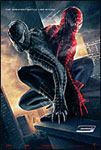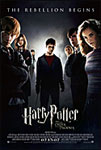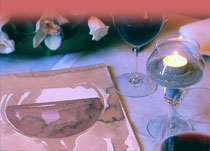
KIDS KALEIDOSCOPE
by Cody Hilton
Spiderman has been a big hit with kids this month, and I thought it was the best one ever. The film had big opening events, even in places like Italy. Also, don't miss Pirates 3 with Johnny Depp. Harry Potter has a film "The Rebellion Begins" and Harry has formed his own army to fight the darkside.



Summer is a time for vacations, camp and no homework. Where ever you live there are great places to visit. The local zoo, or amusement parks are great for the whole family. I enjoy Disneyland and Universal Studio because things are always changing, but they keep the really good attractions, 
If you enjoy sports you can go to a baseball game or go bowling with your family. We are 'go Dodgers' people and enjoy the hot dogs at the stadium. The beach or swimming at the park pool can help to cool off when it gets really hot, or you can just stay home and play some new video games.
What ever you do have some fun, and thanks for reading my column.
Cody HIlton
"MOM – I'M HUNGRY!"
Healthy Kid Snacks for Summer Travel
Ever see a well-prepared Mom offer her child a little bag of carrots, or Goldfish crackers and think "Wow, she's on the ball!" You're right. Moms or Dads that remember to pack little healthy snacks for their kids are less likely to incur the crying and moodiness that comes with hunger and boredom.
Registered dietician Toby Amidor, MS RD, instructor at The Art Institute of New York City, and busy mother of a two and five-year-old and a newborn, says parents would do well to take the time to pack snacks before hopping in the car or boarding a plane or train.
Other tips from Amidor include:
- Have snacks ready, no matter what the length of the trip. "Kids get hungry after a few minutes in the car or just waiting to board a plane."
- "Stay away from foods that spoil easily. If you pack foods that need to be kept cold, make them the night before your trip, and keep them in the frig until you're ready to leave. Foods from the frig should be eaten within 4 hours of being taken out." If they'll be out longer, use an ice pack to keep snacks cold in a thermal lunch bag.
- Among her favorite healthy snacks for the road are PB&J's, cheese sticks, egg salad on whole wheat or cream cheese and cucumber, also on whole wheat pita.
- And as a registered dietician, it's no surprise Amidor likes fruit for kids. Her favorites are easy-to-eat clementines, grapes or bananas.
BRINGING UP BABY:
E – The Environmental Magazine on Raising an Earth-Friendly Child
When it comes to raising a natural baby, it’s not always easy being green, E – The Environmental Magazine reports in its May/June 2007 cover story, “Natural Baby, Toxic World” (now posted at www.emagazine.com).
The average baby poops and pees through some 8,000 diapers before potty training. Then there are the baby food jars, the formula cans, the plastic containers of wipes, the scented disposable diaper bags, the plastic swings and teething rings and the crib with all its trimmings. Of course, green varieties of every baby product are available on-line and on supermarket shelves: from non-toxic cleaners to chlorine-free diapers and organic cotton crib mattresses. But is buying eco-versions of baby products enough?
A new trend, E reports, is “Attachment Parenting,” which includes modeling traditional cultures by wearing the baby in a wrap, “co-sleeping” and regular breast feeding as opposed to cribs, carriers, swings and bottles. Some have even taken that philosophy to the next “natural” conclusion - going diaper free.
“For me it was the missing link,” says Melinda Rothstein, co-founder of DiaperFreeBaby. She has used the method with her son, Samuel, since he was eight months old and with her daughter Hannah since birth. The practice consists of making observations of the child’s facial expressions and verbalizations (like squirming and grunting) whenever they have to go. Then the parent can use any container that holds liquid to catch the waste, and the contents get flushed down the toilet.
“It’s consistent with responding to the baby’s needs in a very proactive way,” Rothstein says. “I nursed my son until he was three, but he was out of diapers at 11 months. That’s considered backwards in our society.” DiaperFreeBaby has grown to include chapters in 35 U.S. states and 11 countries. The group Rothstein helped found for other interested mothers in Boston has grown to 20 members.
Of course 90 percent of American parents continue to use disposable diapers. The diaper service industry enjoyed a heyday in the early 1990s, but now, says Jack Shiffert, executive director of the National Association of Diaper Services, it’s nearly out of business. But disposables are made with a bevy of chemicals, including chlorine bleaching agents and volatile organic compounds such as toluene, ethylbenzene, xylene and dipentene, which have been linked to cancer and brain damage. And 3.5 million tons of disposable diapers are sent to landfills each year. About 38,000 are tossed every minute in the U.S.
A company called gDiapers thinks they've found the green solution. Founders and parents Jason and Kim Graham-Nye created a diaper liner made of sustainable tree-farmed fluff pulp and other flushable materials. The liners contain no elemental chlorine, no perfumes or dyes, no plastic layer and no latex. What’s more, gDiapers fully decompose and the company actually encourages users to put their wet liners into compost piles, where they will “provide a rich source of nitrogen and organic matter.”
Meanwhile, the organic foods industry has been growing at a rate of 20 to 24 percent annually over the last few years, and the baby food aisle of local supermarkets has seen a substantial increase in organic selections from companies like Gerber’s and Earth’s Best.
But the biggest advances in organic meals for baby are happening in the supermarket freezer. Shazi Visram launched the Brooklyn-based company, Happy Baby, on Mother’s Day 2006, joining other frozen baby food lines by makers like Plum Organics. Happy Baby’s frozen meals come in individual cubes in flavors like “Smarter Squash and Wiser Apple,” and “Baby Dahl and Mama Grain.”
“In our country,” Visram says, “babies are started on processed food.... to attain shelf stability for up to three years they cook the food at high temperatures. It creates a seal but it cooks the flavor and nutrients out.” Quoting her company’s motto Visram says she wants parents to start "thinking outside the jar.”
And what about “child-proofing” the home? In its Blue Butterfly Campaign, the Children’s Health Environment Coalition suggests “Five Easy Steps” to a child-safe home. These are: avoiding pesticides and insecticides; using nontoxic cleaners; cleaning indoor air; eating more organic foods; and using plastic products more wisely. Vinyl bath toys and plastic teethers and bottles could contain phthalates and Bisphenol A (BPA), which have been shown to disrupt the reproductive systems of lab animals. While legislation to ban these substances is under review, until then consumers can use the recycling codes to determine content. If it’s marked #7, it’s polycarbonate plastic and contains BPA; if it's marked #3, it’s PVC plastic and contains potentially harmful phthalates.
As concerns about household toxins grow, companies are eagerly pushing their “green” versions of traditional cleaning products. And scientific findings are supporting their cause. Well, sort of. A University at California Berkeley study in April 2006 found that many commonly used household cleaners emit toxic pollutants that could lead to health problems. Of particular concern were products containing glycol ethers or terpenes, compounds found in pine, lemon and orange oils.
Unfortunately, says William Nazaroff, a UC Berkeley professor of environmental engineering and the study’s lead author, terpenes “appear in conventional products as well as some products that are marketed as green.”
But parents can take precautions regardless of the cleaners they use. They can dilute them, rinse surfaces after use, thoroughly wash sponges after cleaning and/or store used cloths in a sealed receptacle, and make sure the space that is being cleaned is well ventilated during and several hours after cleaning.





